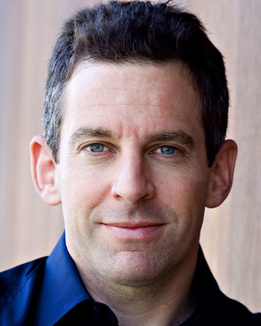
Sam Harris is at it again. He’s created a buzz about spirituality vs. religion in his new book, Waking Up: A Guide to Spirituality Without Religion. In doing so he’s tapped into the hot topic that captured headlines last year: the rise of the “nones” and the growing number who describe themselves as “spiritual but not religious.”
What is intriguing is that there is much being said about this without defining what is meant by “spiritual” and “religious.” Without creating a debate about meanings, it seems at its core that “spiritual but not religious” is shorthand for “I’m done with institutional religion but haven’t given up on the idea of something that transcends us.”
This is understandable because institutional religion is often perceived as the perpetuator of dogma and religious obligations. And the perceptions of these two things by the public are not pretty, as Dallas Willard captures well: “Dogma is what you have to believe, whether you believe it or not. And law [religious obligations] is what you must do, whether it is good for you or not.” With this understanding, who would want to be part of a religious institution?!
However, being spiritual and being religious share something in common: they both involve relationships. “Religion” involves shared beliefs and practices among people, and “spirituality” involves a connectedness to one’s self and others. Because of this, those who are spiritual but not religious are finding ways to be in community. And if this is done for any sustained period of time, new institutions will emerge that have "religious" overtones because of the norms that are shared. And so the cycle continues. In the end, it may be hard to be spiritual but not religious.
Perhaps the message being sent by those who are spiritual but not religious is that they are not interested in rigid institutions that care little about people’s questions and struggles. Instead they would rather leave the institution and create alternative communities that embrace people for who they are and where they are in life.
This should be a wakeup call for the leaders of the institutional church. The institutional church may not survive in its current form, but there will always be a place for communities that provide spiritual belonging.
What is intriguing is that there is much being said about this without defining what is meant by “spiritual” and “religious.” Without creating a debate about meanings, it seems at its core that “spiritual but not religious” is shorthand for “I’m done with institutional religion but haven’t given up on the idea of something that transcends us.”
This is understandable because institutional religion is often perceived as the perpetuator of dogma and religious obligations. And the perceptions of these two things by the public are not pretty, as Dallas Willard captures well: “Dogma is what you have to believe, whether you believe it or not. And law [religious obligations] is what you must do, whether it is good for you or not.” With this understanding, who would want to be part of a religious institution?!
However, being spiritual and being religious share something in common: they both involve relationships. “Religion” involves shared beliefs and practices among people, and “spirituality” involves a connectedness to one’s self and others. Because of this, those who are spiritual but not religious are finding ways to be in community. And if this is done for any sustained period of time, new institutions will emerge that have "religious" overtones because of the norms that are shared. And so the cycle continues. In the end, it may be hard to be spiritual but not religious.
Perhaps the message being sent by those who are spiritual but not religious is that they are not interested in rigid institutions that care little about people’s questions and struggles. Instead they would rather leave the institution and create alternative communities that embrace people for who they are and where they are in life.
This should be a wakeup call for the leaders of the institutional church. The institutional church may not survive in its current form, but there will always be a place for communities that provide spiritual belonging.

 RSS Feed
RSS Feed
